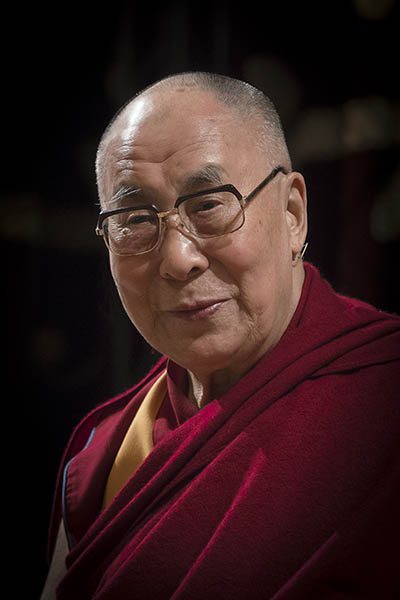
The University of California, Merced, USA, is to present its 15th annual Alice and Clifford Spendlove Prize in Social Justice, Diplomacy and Tolerance to His Holiness the Dalai Lama in a live conference on Sep 18, reported the mercedcountytimes.com Aug 25.
The live video link from India will be limited for viewing, but the full ceremony will be shown at a later date to a larger in-person audience during a special Spendlove Prize celebration at UC Merced, the report said.
The award has been announced by Sherrie Spendlove, the Merced native who made the award possible by a generous gift in honor of her parents Alice and Clifford back in 2005 during the UC Merced opening ceremonies.
“As the leader of the Tibetan Buddhist people and culture, His Holiness the 14th Dalai Lama had to flee Tibet for India as a young man to escape the genocide of his followers and the eradication of his culture by the Chinese government,” Spendlove has said. “To this unfathomable injustice he has repeatedly responded with generosity of spirit and love for his victimizers.
“In our increasingly politically-divided and highly confrontational world, the messages of kindness, peace, compassion, and forgiveness of His Holiness the 14th Dalai Lama, are helpful, not only in advancing sustainable social justice using non-violent methods, but also as a path to better interpersonal relations and a more meaningful life.”
Spendlove has further said, “The Dalai Lama is an internationally-acclaimed spiritual leader whose work promotes peace and is recognized as such by many other international spiritual leaders such as former President Jimmy Carter and South African Archbishop Desmond Tutu, both fellow Nobel Peace Prize winners.”
Source: TibetanReview.net, Aug 26, 2022
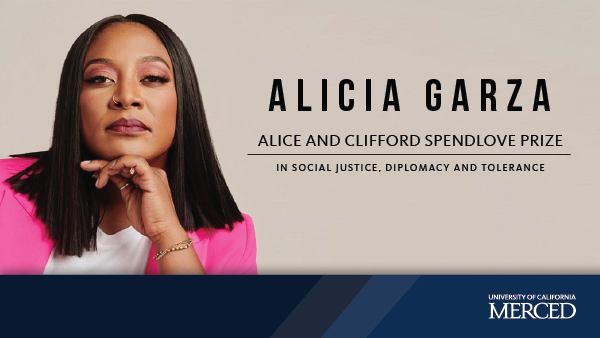
While this year's ceremony looked quite different from years past due to the coronavirus pandemic, the presentation of the Alice and Clifford Spendlove Prize in Social Justice, Diplomacy and Tolerance remained an important celebration.
Alicia Garza, author, civil rights activist and co-founder of #BlackLivesMatter and the Black Lives Matter Global Network, became the 13th recipient of the prestigious award during the virtual event on Tuesday, April 20.
Garza was raised in the San Francisco Bay Area and graduated from UC San Diego with degrees in anthropology and sociology. She has spent the past few decades working to improve others' lives through various organizations including the National Domestic Workers Alliance, Supermajority and the Black Futures Lab, which she founded. The activist is a powerful voice in the media and frequently contributes opinion pieces and expert commentary on politics, race and other topics to major news outlets.
Tuesday's ceremony kicked off with remarks by Professor Nigel Hatton, with the Department of Literatures, Languages and Cultures at UC Merced, who described the award as a "moral arc in the Valley" and stated that the "celebration of justice was alive even in a virtual event."
As Garza took the virtual podium, she made reference to the verdict in the Derek Chauvin trial. Just hours earlier, a jury in Minneapolis found the former police officer guilty of murder and manslaughter in the death of George Floyd.
"At this moment, while we're experiencing incredible, incredible victories that we did not think or see possible a year ago, five years ago, a decade ago, we still have a lot of work to do," Garza said.
In her discourse, Garza said she has worked to forge a new path, leaving behind the "limited options that have been placed in front of us." This led her to declare "Black Lives Matter," a phrase that grew from a social media post to an organization with chapters around the world. Now, she's calling on people to think about what kind of builders they will be and what they're building for the future.
"I believe that Black communities deserve to be powerful in every area of our lives, and we know that Black communities are indeed powerful," she said. "It is Black communities that have shown this country what it is made of and what it can be if it, too, dares to be free.
"It is Black communities who have endured and Black communities who are innovators. We've persevered because of and despite all of the barriers that have been placed in our paths," she said. "We are creators, visionaries, leaders, builders, fighters and winners - not because it's something that is inherent within us but because we've had to be."
Garza took a moment to pay homage to her mother, who passed away three years ago. She said her mom taught her that the "most important lessons in organizing and in building power - at the heart of it all, it's dignity and survival."
"Freedom is our birthright," Garza said. "In my freedom dreams, we're building a new world where none of us get left behind."
As the event drew to a close, UC Merced Chancellor Juan Sánchez Muñoz called it a "privilege" and an "honor" to have the opportunity to listen to Garza's message. He went on to present this year's award, albeit virtually, to Garza, who expressed her gratitude and called it an "incredible honor."
The Spendlove Prize was established at UC Merced in 2005 and is made possible by a generous gift from Merced native Sherrie Spendlove.
"This prize is named in honor of my parents, Alice and Clifford Spendlove, but it is also an elegy to the common man and woman - largely unsung heroes; people who work hard with honesty and integrity, with good will toward all people; people who have built and are continuing to build our community and our country - this is your prize too," Spendlove said during the event.
"UC Merced is deeply appreciative of Sherrie's generosity and the example that her family and parents have given us," Muñoz stated.
The Spendlove Prize Selection Committee, which is tasked with choosing the recipient, is chaired by the dean of the School of Social Sciences, Humanities and Arts and includes a representative from the Spendlove family or a designee, an undergraduate student, a graduate student, a faculty member and representatives from the UC Merced community.
This year, the award committee was chaired by Dean Jeffrey Gilger and included Spendlove as family representative, Hatton as a member of the faculty and Lee Anderson and Charlie Bennet as members of the local community. Due to the COVID-19 pandemic, the undergraduate and graduate student positions were left vacant after the previous students departed.
Past recipients of the Spendlove Prize include former President Jimmy Carter, 1992 Nobel Peace Prize winner Rigoberta Menchú Tum, civil rights activist John Y. Tateishi, Harvard Professor Charles Ogletree, Jr., 2016 Pulitzer Prize winning poet Peter Balakian, a leading voice of Armenian Genocide recognition, among many other high-profile national and international figures.

Human rights activist Nadia Murad has been selected as the 14th recipient of the Alice and Clifford Spendlove Prize in Social Justice, Diplomacy and Tolerance. The 2018 Nobel Peace Prize recipient will be honored during a virtual ceremony on Nov. 3.
Murad is an advocate for survivors of genocide and sexual violence. Her New York Times bestselling memoir “The Last Girl: My Story of Captivity, and My Fight Against the Islamic State” provides a harrowing account of the genocide against the Yazidi ethno-religious minority in Iraq and Murad’s imprisonment by the Islamic State.
Merced native Sherrie Spendlove, who in 2005 established the Spendlove Prize in honor of her parents, Alice and Clifford, identified some of the atrocities Murad and her community experienced.
"One of the greatest injustices that exist is that innocent women and children bear the backlash of the violence of any war or armed conflict,” she said. “Nadia Murad, a young Yazidi woman from northern Iraq, experienced this travesty of justice. In August 2014, ISIS committed genocide against her people, her entire village and her family. They also kidnapped the young females, some as young as 9, along with Nadia and her sisters for the purpose of sexual trafficking.”
After escaping captivity, Murad began speaking out on behalf of her community. Murad is the founder and president of Nadia’s Initiative, a non-profit dedicated to rebuilding communities in crisis and advocating for survivors of sexual violence. Nadia’s Initiative’s current work is focused on the sustainable re-development of the Yazidi homeland in Sinjar and pursuing holistic justice for survivors of ISIS atrocities.
Much of Nadia’s advocacy work is focused on meeting with global leaders to raise awareness of the genocide against the Yazidi people and the systemic use of sexual violence as a weapon of war. She and her team have advocated for legislation that protects and promotes women’s rights, as well as drafting and advocating for the passage of resolutions to expand the UN’s commitments to end sexual violence in conflict.
In 2016, Murad became the first United Nations Goodwill Ambassador for the Dignity of Human Trafficking. She was also awarded the Council of Europe Václav Havel Human Rights Prize and Sakharov Prize for Freedom of Thought. Two years later, Murad won the Nobel Peace Prize with Dr. Denis Mukwege. Murad was appointed as a UN Sustainable Development Goals Advocate in 2019.
“The Spendlove Prize supports Nadia's righteous quest to bring ISIS to the International Court of Justice for their egregious crimes against humanity and her life's work to help other survivors of genocide and human sex trafficking to heal and rebuild their communities through her program Nadia's Initiative,” Spendlove said.
“We are delighted to have Nadia Murad join the growing number of recipients of the Spendlove Prize,” School of Social Sciences, Humanities and Arts Dean Jeffrey Gilger said. “Alice and Clifford Spendlove focused their careers on improving the lives of others – something that Nadia is working tirelessly to accomplish as well.”
The award, made possible by a generous gift from Spendlove, recognizes a renowned scholar, author, artist or citizen who exemplifies, in their work, the delivery of social justice, diplomacy and tolerance in the diverse local and global society. The recipient serves as a role model and inspiration for students, faculty, staff and the community surrounding UC Merced.
The Spendlove Prize Selection Committee, which determines the recipient, is chaired by the dean of the School of Social Sciences, Humanities and Arts and includes a representative from the Spendlove family or a designee, an undergraduate student, graduate student, faculty member and representatives from the UC Merced community.
Past recipients of the prize include Black Lives Matter co-founder Alicia Garza, former President Jimmy Carter 1992, and Nobel Peace Prize winner Rigoberta Menchú, among several other high-profile figures.
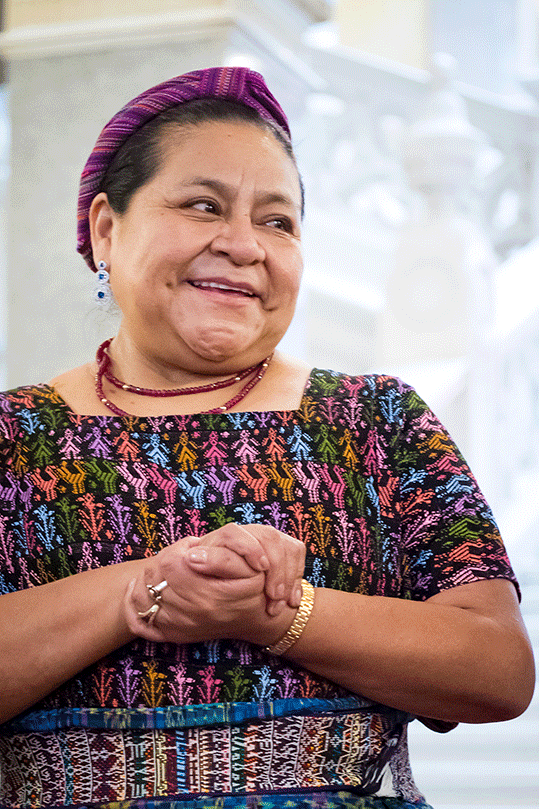
Nobel laureate Rigoberta Menchú Tum, recognized for her work in social and ethno-cultural reform, has been selected to receive the 2018 Alice and Clifford Spendlove Prize in Social Justice, Diplomacy and Tolerance at UC Merced.
“Rigoberta Menchú is a perfect choice for the Spendlove Prize because she embodies so much of what UC Merced stands for — equality, justice, a place for the underserved and underrecognized, and opportunity despite adversity,” Chancellor Dorothy Leland said. “I greatly look forward to welcoming her to meet with our community of students, staff and faculty, as well as members of the Merced community, to share her important work and message.”
Menchú Tum — who uses both names specifically to honor her parents — was born in Guatemala to a poor, indigenous peasant family and raised in a branch of the Mayan culture. Her family worked farms in the highlands and along the coast, picking coffee.
The 1992 Nobel Peace Prize winner also won the Prince of Asturias Award in 1998. She is the author of the autobiographical work “Crossing Borders.” Menchú Tum is a UNESCO Goodwill Ambassador and ran for president of Guatemala in 2007 and 2011.
She has a long life of service to social justice, dating back to when she was a teenager, when she joined social reform activities through the Catholic Church and became prominent in the women's rights movement.
Her work drew attention and opposition. Her family was accused of taking part in guerrilla activities and Menchú Tum’s father was imprisoned and tortured. After his release, he joined the Committee of the Peasant Union, as did she. That year, her brother was arrested, tortured and killed by the army, and the following year, her father was killed when security forces in the capital stormed the Spanish Embassy where he and other peasants were staying. Shortly after, her mother died after being arrested, tortured and raped. Menchú Tum became increasingly active in the CUC, and taught herself English, Spanish and Mayan languages other than her native tongue.
She helped lead farm-worker strikes and demonstrations, and as part of the radical group 31st of January Popular Front, she helped teach the indigenous peasant population to resist massive military oppression.
In the early 1980s, Menchú Tum went into hiding and Guatemala and fled to Mexico, becoming an organizer to resist oppression in Guatemala and advocating for indigenous peoples’ rights. She helped found the United Representation of the Guatemalan Opposition and joined the National Coordinating Committee of the CUC.
Her work drew the attention of the Spendlove Prize Committee, which selects honorees from among scholars, authors, artists or other citizens who exemplify, through their work, the delivery of social justice, diplomacy and tolerance in the diverse local and global society.
Campus friend Sherrie Spendlove established the prize in 2005 through a gift to the university in honor of her parents, lifelong Merced residents Alice and Clifford Spendlove, who dedicated their lives to education and public service.
“The Spendloves left us a legacy that exalts education through their teachings,” Menchú Tum said. “It is an honor for me to be part of this legacy that will continue to illuminate future generations.”
Menchú Tum’s work has earned her recognition across the Western Hemisphere generally and several international awards, including the 1996 Nobel Peace Prize.
She also narrated a film about the struggles of the Maya called “When the Mountains Tremble” and is the subject of a book entitled “I, Rigoberta Menchú.”
She returns sometimes to Guatemala to plead the cause of the indigenous peasants, but death threats keep her in exile.
“Rigoberta Menchú is a courageous crusader, at great personal peril, for basic human rights for her people — the indigenous populations of Guatemala. She has campaigned against the cruelty, greed and ignorance of those in power who deny them the basic right to exist, to eat, work and live,” Spendlove said. “The government authorities have done this by the theft of their native land, the destruction of the natural ecosystem upon which their civilization depends, by the mass murder and widespread rape and torture of the indigenous population, and by wiping out entire families and communities, their centuries-long traditions and their entire way of life.”
Menchú is in good company with past Spendlove Prize recipients, including Native American activist and author Winona LaDuke; Professor Anita Hill, attorney and professor of social policy, law and women's studies; slain Civil Rights activist Viola Gregg Liuzzo; Pulitzer Prize-winning poet Peter Balakian; California Supreme Court Justice Cruz Reynoso; President Jimmy Carter; Sara O’Meara and Yvonne Fedderson, who founded Childhelp USA; Jonathan D. Jansen, South Africa's first black dean; Professor Faye J. Crosby, an expert in inclusiveness, gender, race and affirmative action at UC Santa Cruz; John Y. Tateishi, the leader of the successful struggle for reparations for Japanese-American internees; and Charles Ogletree, Jr., a Merced native, Harvard Law School professor, social justice and ethics expert and constitutional law scholar.
“An internationally-recognized spokesperson and ambassador for human rights, Rigoberta Menchú has dedicated her entire life to the defense and support of indigenous people and women,” School of Social Sciences, Humanities and Arts (SSHA) Dean Jill Robbins said. “She is an inspiring world leader, one who embodies the values that the Spendlove Prize seeks to recognize.”
Robbins leads the Spendlove Prize Selection Committee, which includes Sherrie Spendlove, an undergraduate student; a graduate student; a faculty member; and representatives from the UC Merced community. The Prize includes a $10,000 award.
Menchú Tum will accept her award at a public ceremony beginning at 6 p.m. Nov. 5 at the Merced Theater, and will deliver a keynote address. She will also spend time with students on campus that day, as well as attending a private reception with Chancellor Leland, among others.
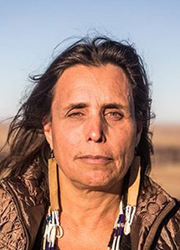
LaDuke’s lifelong dedication to social change, justice, equity and the environment alongside indigenous communities earned her the 2017 Spendlove Prize. A prolific author, LaDuke is most recently known for speaking on behalf of the resistance camps in North Dakota as people stood against the Dakota Access Pipeline project, trying to protect water, land and sites that are sacred to indigenous people. She is a leader on the issues of cultural-based sustainable development strategies, renewable energy and sustainable food systems, helped found the Indigenous Women's Network and worked with Women of All Red Nations to publicize forced sterilization of Native American women, as well as founding the White Earth Land Recovery Project (WELRP) in Minnesota to buy back land within the reservation that had been bought by non-natives.

Hill’s public testimony during the 1991 Senate confirmation hearings for then-Supreme Court nominee Clarence Thomas thrust her into the national spotlight and raised national awareness of sexual harassment. The hearings — portrayed in the 2016 HBO film “Confirmation,” with Kerry Washington starring as Hill — are considered a watershed moment for women’s rights and led to changes in workplace laws and practices to protect women and men from harassment. Hill has been an advocate for equality and social justice for decades. She is an attorney and professor of social policy, law and women's studies at Brandeis University and a faculty member of Brandeis' Heller School for Social Policy and Management.

Viola Gregg Liuzzo, a civil rights activist who was killed by the Ku Klux Klan while driving another activist home from the Southern Christian Leadership Conference in March 1965, has been named the 2014 recipient of the Alice and Clifford Spendlove Prize in Social Justice, Diplomacy and Tolerance.
A wife and mother of five children ranging in age from 6 to 18, Liuzzo left her Detroit home in spring 1965 to work with Martin Luther King Jr. to register black voters in Selma after seeing news about a police attack on 600 civil rights workers as they tried to march from Selma to Montgomery. The day after Liuzzo’s murder, President Lyndon B. Johnson appeared on television to announce that her four killers had been caught. Despite efforts by the FBI to discredit her for being in the car with a black man, 350 people attended Liuzzo's funeral, including King, and her murder led Johnson to order an investigation into the KKK.
It is believed that her activism and death helped hasten the Voting Right Act of 1965 signed by President Lyndon B. Johnson. Liuzzo's story has been the subject of several books and a documentary. She is among the 40 civil rights martyrs honored on the Civil Rights Memorial in Montgomery and she was inducted into the Michigan Hall of Fame in 2006.

Jonathan D. Jansen, vice chancellor and rector of the University of the Free State and South Africa's first black dean, is the first international recipient of the Spendlove Prize.
Jansen is widely known for his policy of “reconciliation over revenge” in the manner of Nelson Mandela and Desmond Tutu. He also serves as president of the South African Institute of Race Relations. His book “Knowledge in the Blood” offers an intimate look at the effects of social and political change after apartheid. He reveals the important role education played in confronting the past, as well as critical theory's limits in dealing with conflict in a world where formerly clear-cut notions of victims and perpetrators are blurred. The book, published in 2009, received an outstanding book award from the American Educational Research Association.
Professor Jansen holds a Ph.D. from Stanford University, has received honorary doctorates of education from the University of Edinburgh and Cleveland State University, and is an honorary professor of education at the University of Witwatersrand in South Africa. He is a fellow of the American Educational Research Association and the Academy of Science of the Developing World. He is also a visiting fellow at South Africa’s National Research Foundation.

Peter Balakian, a 2016 Pulitzer Prize winning poet and a leading voice of Armenian Genocide recognition, is the Donald M. and Constance H. Rebar Professor of the Humanities in the department of English at Colgate University.
Balakian is the author of the memoir "Black Dog of Fate," winner of the PEN/Albrand Prize for memoir and a New York Times Notable Book. In the book, Balakian writes about learning what his family and ancestors experienced with the Turkish government's extermination of more than a million Armenians in 1915, including many of his relatives. The massacre led to the creation of the word "genocide" and served as a template for Nazi Germany's Holocaust. He also wrote "The Burning Tigris: The Armenian Genocide and America’s Response," which won the 2005 Raphael Lemkin Prize and is a New York Times best seller. In thHe has received numerous awards, prizes and civic citations, including a Guggenheim Fellowship and a National Endowment for the Arts Fellowship, all of which relate to his research and activism on the topic of the Armenian Genocide.
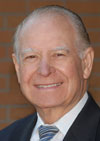
Cruz Reynoso has devoted his life to eradicating discrimination. Driven by his upbringing as the son of farm workers in California’s Central Valley, Reynoso chose to pursue a career in law advocating for immigrant rights.
He was the recipient of the Presidential Medal of Freedom, the nation’s highest civilian honor, for his lifelong devotion to public service, as well as a recipient of the Distinguished Public Service Award from UC Davis. He is celebrated as the first Latino associate justice of the California Supreme Court. He has served on the California Third District Court of Appeals.
From 1994 to 2004, he served as vice chair of the U.S. Commission on Civil Rights. In addition, he has served on numerous federal, state and professional boards supporting civil rights, social justice and education. Reynoso has been on the faculty as a professor of law at the University of New Mexico, the University of California, Los Angeles, and UC Davis.
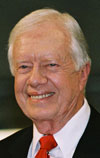
Jimmy Carter, the 39th president of the United States, is known to the world as a human rights advocate.
As president, he attempted to lead the country out of an energy crisis and delivered his famed “Malaise” speech asking the nation to keep confidence in their potential.
He promoted diversity and multiculturalism at every level, including appointing those of different ethnic, racial and religious backgrounds to fill the most prestigious offices in Washington, D.C. He continues to be an outspoken voice of the people in all issues foreign and domestic, and has written nearly 25 books. His continued perseverance won him a nomination for the Nobel Peace Prize in 2002.

Faye J. Crosby is an author, professor of social psychology and provost at UC Santa Cruz and activist who, in her work, exemplifies the delivery of social justice, diplomacy and tolerance in the diverse local and global society.
A University of California, Santa Cruz, professor of social psychology since 1997, Crosby investigates both the dynamics of and remedies for sex and race discrimination. She has been on the faculty at Rhode Island College, Yale, Smith College and The Kellogg School of Management. A prolific writer, her most recent books include “Affirmative Action, is Dead: Long Live Affirmative Action” and “The Psychology and Management of Workplace Diversity.”
Balancing her academic work, Crosby is committed to the profession of psychology and to the application of psychology to social problems. Crosby has fulfilled leadership roles in many institutions and is the founder of Nag’s Heart, an organization that supports women and men who work for gender equity. Crosby has been honored for her scholarship and her activism. She was the recipient of numerous professional awards including the Carolyn Wood Sherif Award and the Kurt Lewin Award, both from the American Psychological Association.

Childhelp founders Sara O’Meara and Yvonne Fedderson have displayed a lifelong commitment to helping children in need.
O’Meara and Fedderson started Childhelp USA as International Orphans Inc. (IOI) in 1959. The two women were young actresses participating in a goodwill tour of Asian countries when they discovered the plight of orphans on the streets of Tokyo. Their efforts to help these children evolved into an organization, which for 15 years operated four orphanages in Japan, plus five orphanages, a children’s hospital and a school in Vietnam.
In the mid-1970s, O’Meara and Fedderson turned their focus to the problem of child abuse in America and the organization subsequently was renamed Childhelp USA. They established the leading national nonprofit organization to help victims of child abuse and those at risk of such crimes.
O’Meara and Fedderson were instrumental in establishing the National Day of Hope, which mobilizes people across the U.S. each April during National Child Abuse Prevention Month to join the fight against child abuse.
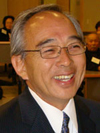
John Y. Tateishi, an activist for civil rights, has been involved with Asian American communities for nearly 30 years, gaining national prominence in 1978 when he launched a national campaign to seek redress for Japanese Americans interned in U.S. detention camps during World War II.
As the National Redress Director of the Japanese American Citizens League (JACL), Tateishi crafted the legislative and public affairs strategies of the campaign that successfully culminated in 1988 with an apology from the president and Congress, and monetary redress for internment victims.
From 1999 to 2006, he served as national executive director of the Japanese American Citizens League, the nation’s oldest and largest Asian American civil rights organization, undertaking the challenge of shepherding the 73-year-old organization into the new millennium.
He has appeared before public audiences throughout the country as well as in the media; authored “And Justice for All,” an oral history of the World War II internment of Japanese Americans; and served as a contributing author to “Last Witnesses,” a collection of essays by the children of the WWII internment camps.

Charles J. Ogletree Jr. is a Merced native who is now a Jesse Climenko Professor of Law and the founding executive director of the Charles Hamilton Houston Institute for Race and Justice at Harvard University.
Ogletree has made an international reputation by taking a hard look at complex issues of law and working to secure the rights guaranteed by the Constitution for everyone equally under the law. In addition, he serves as co-chair of the Reparations Coordinating Committee, a group of lawyers and other experts researching a lawsuit based upon a claim of reparations for descendants of African slaves.
Ogletree is co-author of “Brown at 50: The Unfinished Legacy,” which commemorates the 50th anniversary of Brown v. Board of Education. In his historical memoir, “All Deliberate Speed: Reflections on the First Half-Century of Brown v. Board of Education,” Ogletree examined the effect the “Brown” decision had on him and his family.